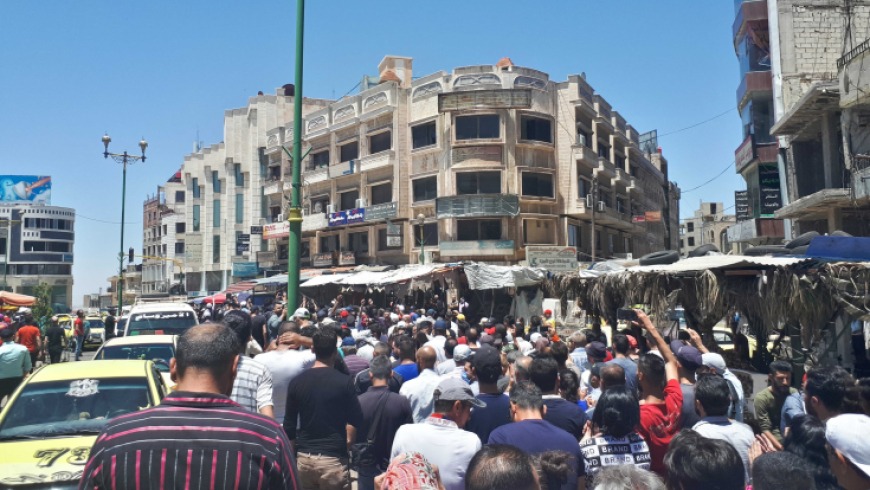Following an increase in fuel prices by the Syrian regime, a transportation strike has disrupted the movement of people in various Syrian regions. The areas under Syrian regime control experienced a significant strike in private transportation services due to the fuel price hike. This strike caused confusion among residents and students across most Syrian governorates.
Shortly after President Bashar al-Assad issued a legislative decree raising salaries for public sector workers by 100 percent, his government approved revisions to the prices of diesel, gasoline, fuel, and liquid gas. The Ministry of Internal Trade and Consumer Protection’s decisions led to price hikes for different fuel categories. The new prices were as follows: subsidized diesel at 2000 SP (previously 700 SP), subsidized 90-octane gasoline at 8000 SP (formerly 3000 SP), and 95-octane gasoline at 13,500 SP (previously 10,000 SP).
These decisions caused a shock in Syrian society, resulting in a strike among taxi and public transport drivers, disrupting transportation services between Syrian cities and towns across all governorates.
Reports from various sources detailed the impact of the strike:
– Tishreen newspaper, affiliated with the Syrian regime, reported on Facebook about the confusion among citizens due to the fuel price hike, noting the lack of clarity about fare adjustments following the increase.
– The “March 18” website, focusing on news from southern Syria, reported a comprehensive strike in public transport in the As-Suwayda governorate. This strike was a response to the refusal of “subscribers,” or vehicle owners, to transport passengers in protest of the fuel price increase. Workers turned to expensive taxis to reach their workplaces, and even Damascus University had to postpone exams due to the disruption.
– Ihab Kazara, a journalist from the “Sama” channel closely associated with the Syrian regime, stated that car owners across Syria went on strike to demand fare increases following the fuel price hike.
– In Aleppo, neighbourhoods experienced public transportation congestion and disruptions as some services stopped due to the rise in diesel fuel prices. Workers and students faced difficulties reaching their destinations on time, impacting their studies and jobs.
– In Homs, which also witnessed public transportation congestion and disruptions, internal transport stations witnessed overcrowding and a decrease in operational service cars. Drivers increased fares to over 800 pounds from 400 pounds before the subsidized fuel oil price increased to 2,000 pounds.
– Bashar al-Abdullah, a member of the executive office for the transportation sector in Homs, mentioned efforts to manage the situation, including coordinating with the internal transport company and traffic branch. He highlighted that the Executive Office is studying new tariffs based on the Ministry of Internal Trade and Consumer Protection’s determined increase rate for various transport lines.
The transportation strike in response to the fuel price increase has led to considerable disruptions and challenges for residents, workers, and students across various regions of Syria.


